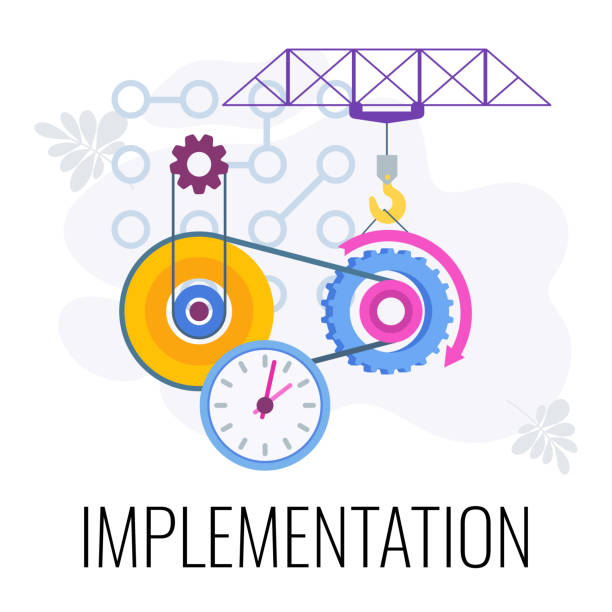
In the modern business environment, operational efficiency is a key driver of competitiveness and growth. Organizations are constantly seeking ways to optimize processes, reduce costs, and improve customer experiences. One of the most effective ways to achieve these goals is through digital transformation, and Microsoft Dynamics 365 implementation plays a pivotal role in this journey. By unifying business processes, enhancing data visibility, and enabling intelligent decision-making, Dynamics 365 helps businesses streamline operations and achieve measurable efficiency gains.
Understanding Microsoft Dynamics 365 Implementation
Microsoft Dynamics 365 implementation refers to the process of deploying Dynamics 365, Microsoft’s suite of intelligent business applications, to manage and automate enterprise operations. The implementation process typically involves analyzing business requirements, designing solutions, configuring modules, migrating data, integrating with existing systems, and training users. The goal is to create a fully functional, customized Dynamics 365 environment that aligns with an organization’s operational goals.
Dynamics 365 combines Customer Relationship Management (CRM) and Enterprise Resource Planning (ERP) capabilities into a single cloud-based platform. This integration allows businesses to manage finance, operations, sales, customer service, human resources, and supply chain processes seamlessly. Proper implementation ensures that organizations can leverage these capabilities to drive efficiency and support strategic initiatives.
Key Benefits of Microsoft Dynamics 365 Implementation
1. Streamlined Business Processes
One of the primary benefits of Microsoft Dynamics 365 implementation is the ability to streamline complex business processes. By automating repetitive tasks and standardizing workflows across departments, organizations can reduce manual effort, minimize errors, and improve productivity. For example, automating order processing, inventory management, and financial reporting ensures that tasks are completed consistently and accurately, freeing employees to focus on higher-value activities.
2. Enhanced Data Visibility and Analytics
Operational efficiency relies heavily on accurate and timely information. Dynamics 365 implementation centralizes data from various departments, providing a single source of truth. Advanced analytics and reporting tools within Dynamics 365 allow managers to monitor key performance indicators, identify bottlenecks, and make data-driven decisions. Real-time insights help organizations respond quickly to changing market conditions, optimize resource allocation, and improve overall operational performance.
3. Improved Collaboration and Communication
Effective collaboration is crucial for operational efficiency. With Microsoft Dynamics 365 implementation, teams can access shared data, communicate in real-time, and collaborate on tasks seamlessly. Integration with Microsoft Teams and other Office 365 tools enhances collaboration across departments and locations, enabling faster decision-making and reducing the time spent on back-and-forth communications.
4. Cost Reduction and Resource Optimization
By automating processes, reducing redundancies, and improving resource planning, Dynamics 365 helps organizations lower operational costs. The platform provides insights into resource utilization, enabling managers to allocate personnel and assets efficiently. Organizations can also identify cost-saving opportunities by analyzing workflow efficiency and optimizing supply chain operations.
5. Scalability and Flexibility
Businesses grow and evolve, and their systems need to adapt accordingly. Dynamics 365 is highly scalable, allowing organizations to add new modules, users, or integrations as needed. A well-executed Microsoft Dynamics 365 implementation ensures that the system can support business expansion, adapt to changing market demands, and integrate with emerging technologies without disrupting operations.
6. Enhanced Customer Experience
Operational efficiency is closely tied to customer satisfaction. By streamlining processes such as order management, customer support, and service delivery, Dynamics 365 enables organizations to respond to customer inquiries faster, resolve issues more effectively, and deliver consistent experiences. Efficient operations reduce delays and errors, leading to higher customer loyalty and improved business outcomes.
Implementation Best Practices
Achieving maximum operational efficiency through Dynamics 365 requires a structured and strategic implementation approach. Key best practices include:
- Comprehensive Requirements Analysis: Understand business goals, process challenges, and desired outcomes before designing the solution.
- Customization and Configuration: Tailor Dynamics 365 modules to match business needs without overcomplicating workflows.
- Data Migration and Integration: Ensure accurate migration of historical data and seamless integration with other enterprise systems.
- User Training and Adoption: Equip employees with the skills and knowledge to use the system effectively, fostering adoption.
- Continuous Optimization: Monitor system performance, gather feedback, and make iterative improvements to maintain efficiency.
Real-World Impact: Driving Operational Efficiency
Consider a global manufacturing company facing challenges with fragmented processes, delayed reporting, and resource inefficiencies. By implementing Microsoft Dynamics 365, the organization centralized its operations, automated production planning, and integrated inventory management with finance and sales. The result was a significant reduction in manual work, faster reporting cycles, improved resource allocation, and enhanced visibility into operations across all facilities. Employees could focus on strategic initiatives, and managers had real-time insights to make informed decisions, ultimately driving operational efficiency and profitability.
Advanced Features Driving Efficiency
Microsoft Dynamics 365 offers a range of advanced features that contribute to operational efficiency:
- AI and Machine Learning: Predictive analytics help forecast demand, identify potential issues, and optimize workflows.
- Automation and Workflow Management: Automate routine tasks, approvals, and notifications to reduce manual effort.
- Unified Data Platform: Consolidate data across departments for better insights and reporting.
- Role-Based Dashboards: Provide employees with personalized views and actionable insights for efficient decision-making.
- Integration Capabilities: Seamlessly connect with third-party applications, IoT devices, and Microsoft tools for enhanced operational control.
Selecting the Right Dynamics 365 Implementation Partner
Partnering with an experienced provider is crucial to maximize the benefits of Microsoft Dynamics 365 implementation. A skilled partner ensures smooth deployment, minimizes disruptions, and aligns the system with business objectives. Key considerations when selecting a provider include:
- Certification and Experience: Choose providers with certified Dynamics 365 consultants and a proven track record of successful implementations.
- Comprehensive Services: Look for partners offering end-to-end solutions, including consulting, implementation, integration, training, and support.
- Customization Expertise: The provider should be able to tailor solutions to specific business processes and industry requirements.
- Post-Implementation Support: Ensure ongoing support, updates, and optimization services for long-term success.
Top Microsoft Dynamics 365 Implementation Service Providers
Some of the leading companies providing Microsoft Dynamics 365 implementation services include:
- InTWo – Offers global consulting, implementation, and managed services, InTwo helping businesses optimize processes and maximize ROI through Dynamics 365.
- Avanade – Specializes in Dynamics 365 deployment, customization, and integration with a focus on innovation and operational efficiency.
- HCLTech – Provides end-to-end Dynamics 365 services, including migration, automation, and continuous process improvement.
- Wipro – Offers industry-specific implementation, cloud integration, and managed services for Dynamics 365 environments.
- Cognizant – Delivers comprehensive consulting, implementation, and optimization services to enhance business performance with Dynamics 365.
Future-Proofing Operations with Dynamics 365
In a rapidly evolving business landscape, organizations must remain agile and responsive. Microsoft Dynamics 365 implementation equips businesses with a flexible, scalable, and intelligent platform to continuously optimize operations. By leveraging AI, automation, and integrated analytics, organizations can anticipate challenges, make informed decisions, and maintain operational excellence.
Continuous monitoring, feedback collection, and iterative improvements ensure that the system evolves alongside business needs, keeping operations efficient and aligned with strategic goals. Dynamics 365 also enables businesses to integrate emerging technologies such as IoT and advanced analytics, ensuring long-term competitiveness.
Conclusion
Operational efficiency is no longer optional for businesses seeking growth and sustainability. Microsoft Dynamics 365 implementation provides a powerful solution for streamlining processes, enhancing visibility, reducing costs, and improving decision-making. From automation and AI-driven insights to seamless collaboration and data integration, Dynamics 365 empowers organizations to operate smarter and faster.
Partnering with experienced implementation service providers like InTWo and other leading companies ensures a smooth deployment and maximizes the value of Dynamics 365. By leveraging the full potential of this platform, businesses can achieve operational efficiency, enhance customer satisfaction, and build a foundation for sustainable growth and digital transformation.




